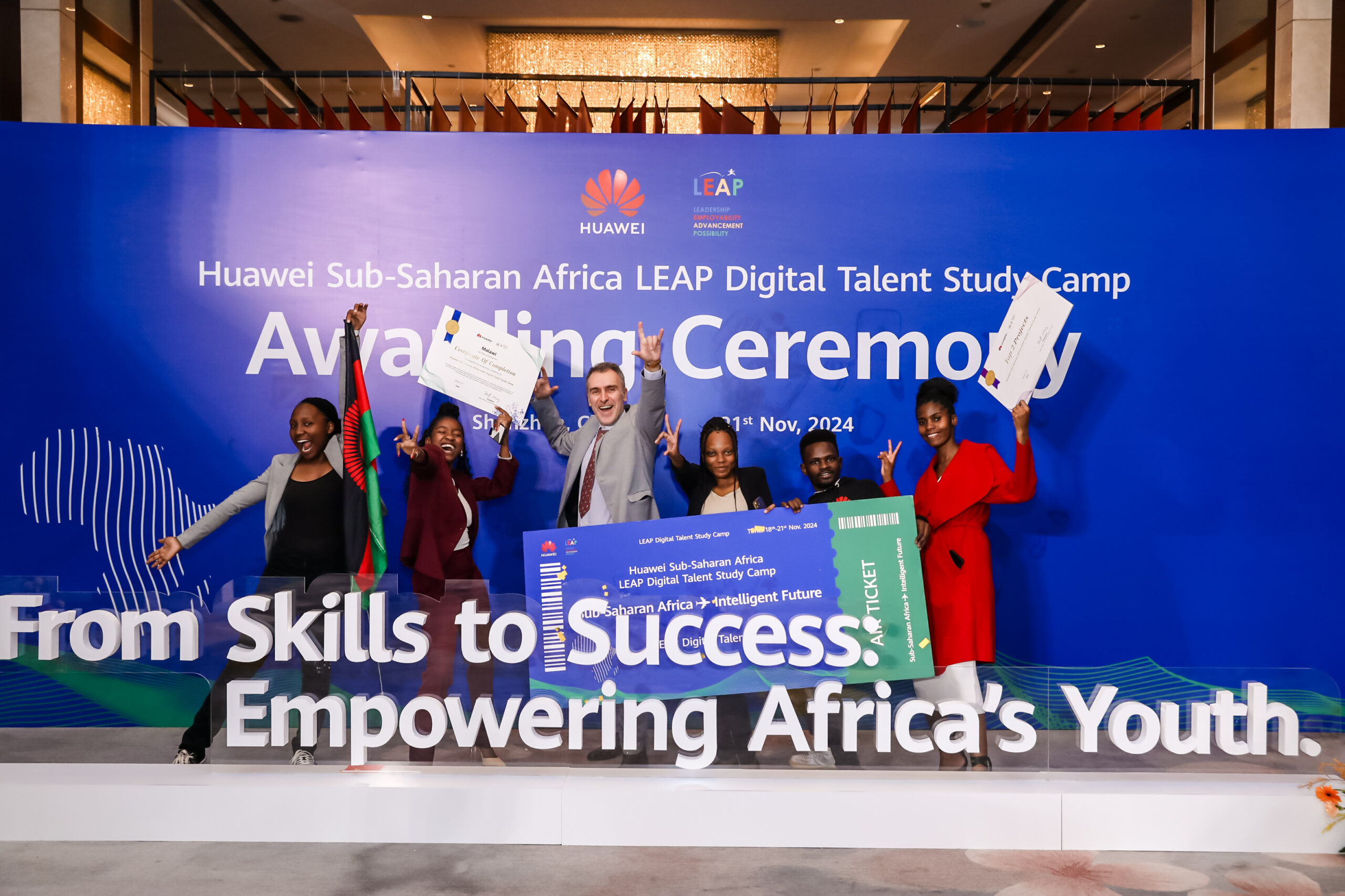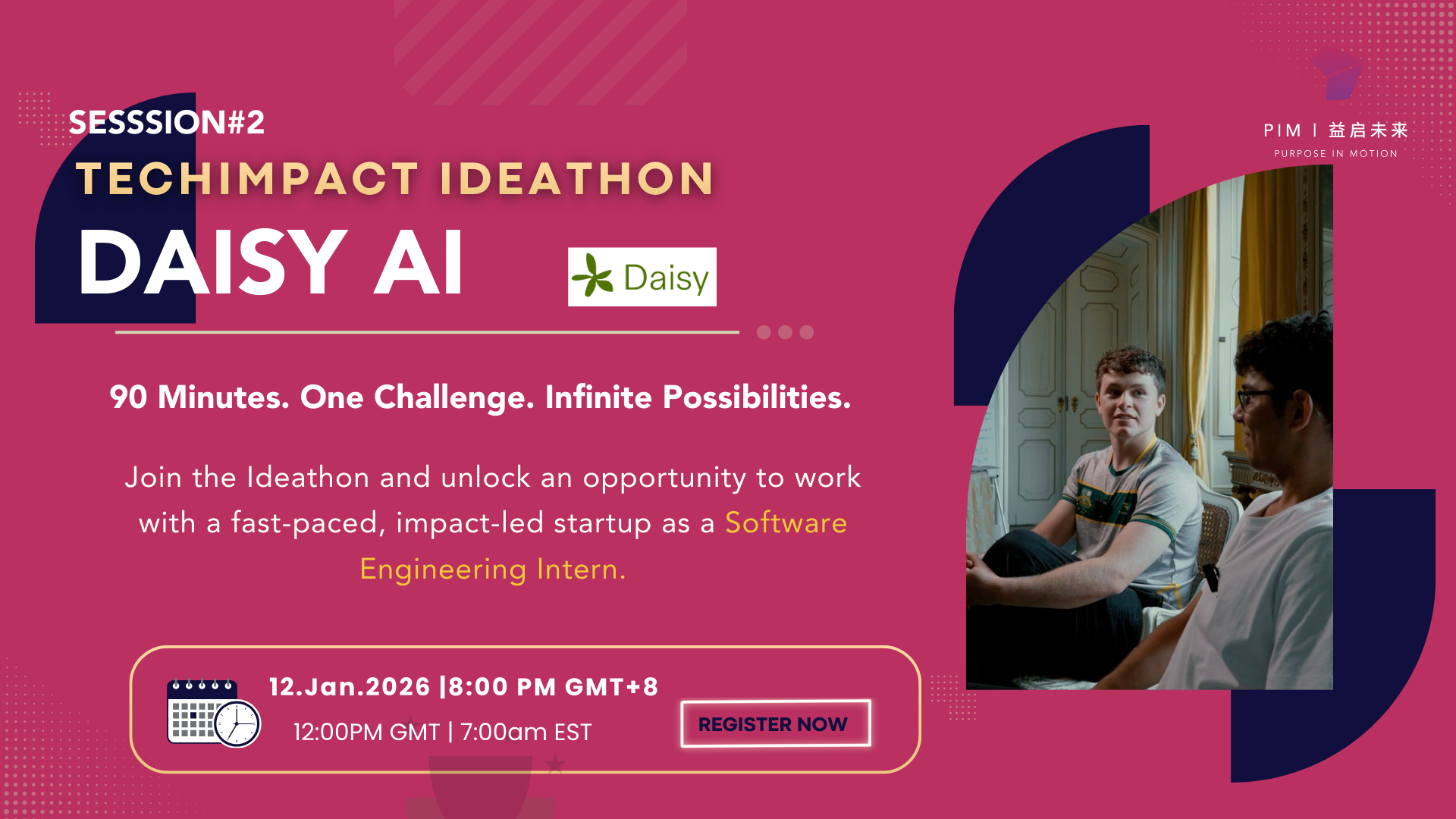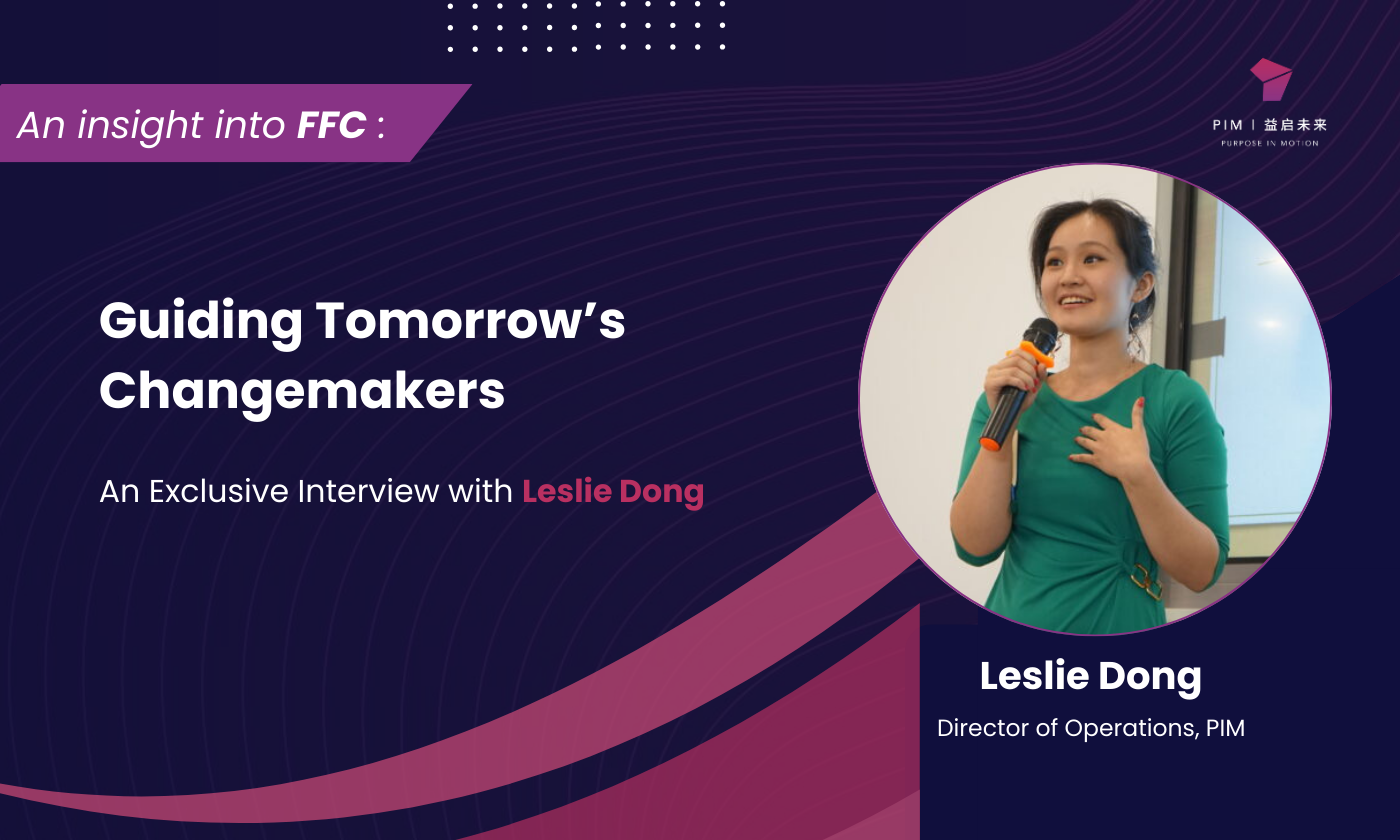I’ve been a Tech4Good mentor now for just over a year and mentored teams from Europe, Southern Africa, Asia Pacific and South America, both in the Regional and the Global stages of the competition.
This has given me enough opportunities to recognize some patterns within the teams that I mentored, as well as within myself as a mentor.
I have realised that the most valuable innovations don’t just come from brilliant ideas (which are definitely important). They come from teams that feel empowered and believe in their ability to create change in the world.
One of the most exciting things about being a mentor wasn’t just watching the technological solutions that have been developed. It’s been witnessing young innovators transform into confident leaders capable of navigating the uncertain words of business in the startup.
How do you balance providing guidance while still ensuring students maintain ownership of their ideas and solutions?
This comes from mastering the art of strategic questioning. What this means is – rather than advising directly- to try and approach each team conversation with curiosity. Asking questions like “what led you to this conclusion” or “what alternatives have you considered” rather than suggesting immediate solutions. This way, as a mentor, I can create space for the teams to think critically while still benefiting from the structured guidance of mentoring.
One example comes to mind from one of the Global Competition’s finalists, Vietnam’s VNVD. Their unique approach to flood disaster relief was based on some objective, country-specific characteristics, as well as the team’s subjective perceptions of how they wanted to approach the solution. This was based not only on their unique technical strengths, but also on how they -philosophically- envisioned their business working and growing in their country. As a mentor, I believe it was very important to respect this vision, and therefore ask questions that provoked awareness and critical thinking without altering their fundamental view.
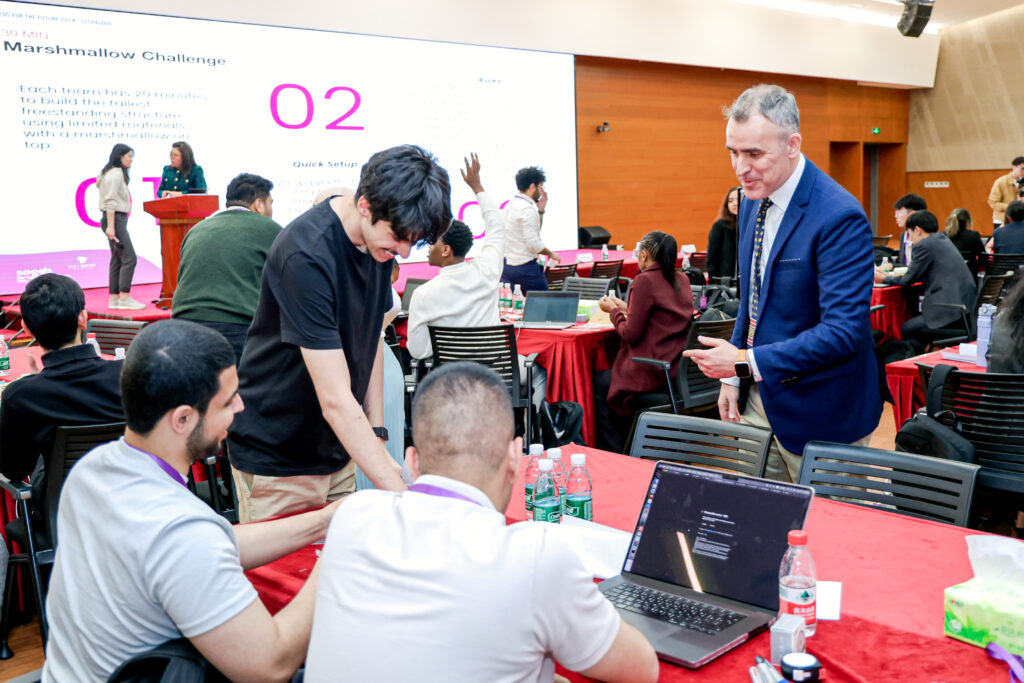
What was the most challenging aspect of mentoring teams from such diverse cultural and educational backgrounds?
When mentoring teams from many different countries and backgrounds, it can be a challenge to navigate the invisible cultural frameworks that shape how teams approach problems, how they communicate and even how they process concepts like success and failure. Bear in mind these frameworks often operate at a subconscious level, but have a profound impact on a team’s outcome. What made this challenge rewarding was learning to recognize when my own cultural assumptions were influencing my thinking and therefore my mentoring. Developing the flexibility to adapt my coaching style to different cultural contexts was really a big win for me.
For example, one team was very comfortable having a direct discussion with me around what could work, what couldn’t work or simply giving me feedback around my own suggestions. Another team was more reserved and reluctant to disagree with me openly. But while one could just come to the conclusion that one team was more extrovert and the other was more introvert, over the days spent together I came to realise it was more of a cultural norm to be direct in one of the country, while the other was culturally conditioned to be in agreement with someone – especially with opinions coming from someone older. So, learning to recognize this was really invaluable for me and my ability to direct my mentoring effectively. In the case of the second team, when I was expressing my thoughts simply as “something I learned in a book” or “read online” rather than my own opinions, the team was more open to give their feedback without worrying they were “disrespecting” me with their direct opinion.
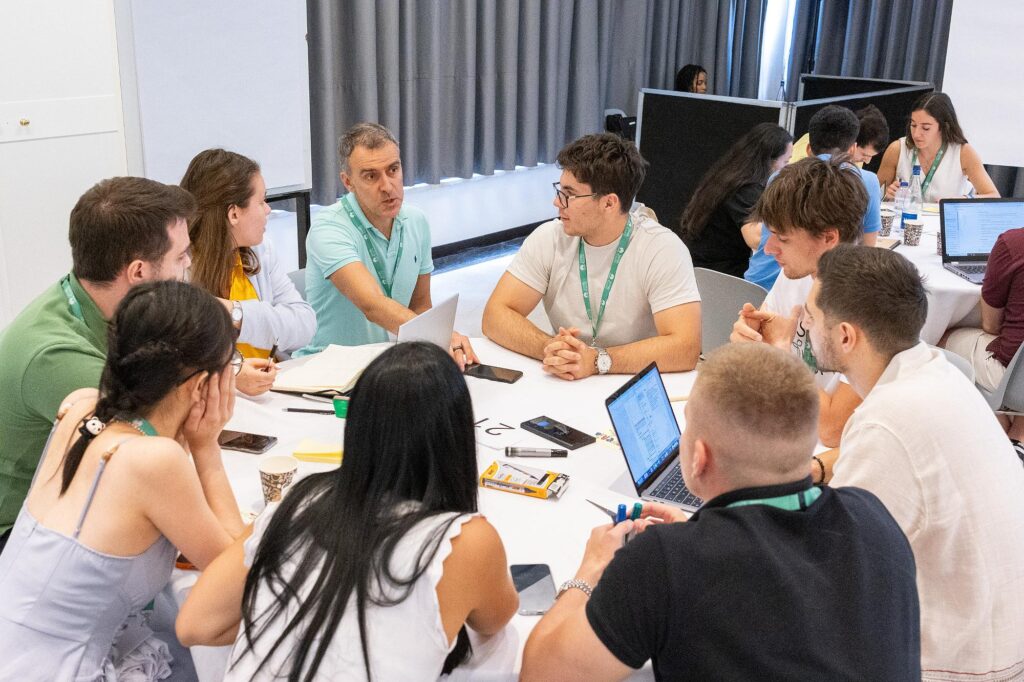
Can you describe a time when you had to help a team pivot their idea or approach? How did you guide them through that transition?
One of the most critical moments in any project that involves innovation is recognizing when a pivot is necessary. Rising Flames from Malawi, after the brainstorming session, ended up developing so many different features for their SoilSmart AI-powered fertiliser solution, that I felt there was a clear risk of scope-creep and a dilution of their main product that would lead them chasing too many things and ultimately lead to a pitch that would lack clarity and focus. I created a structured reflection process first, we brainstormed some scenarios where their current approach may not be working, then I asked them to identify which of their core assumptions were incorrect and finally, we explored how they could preserve the elements that were working and provide the most impact while dropping what wasn’t. This process transformed what could have been a potentially discouraging moment into a very empowering one. At the end of it everyone felt united around a clear, strong, unique proposition. This approach led them to win the Regional Competition for Southern Africa.
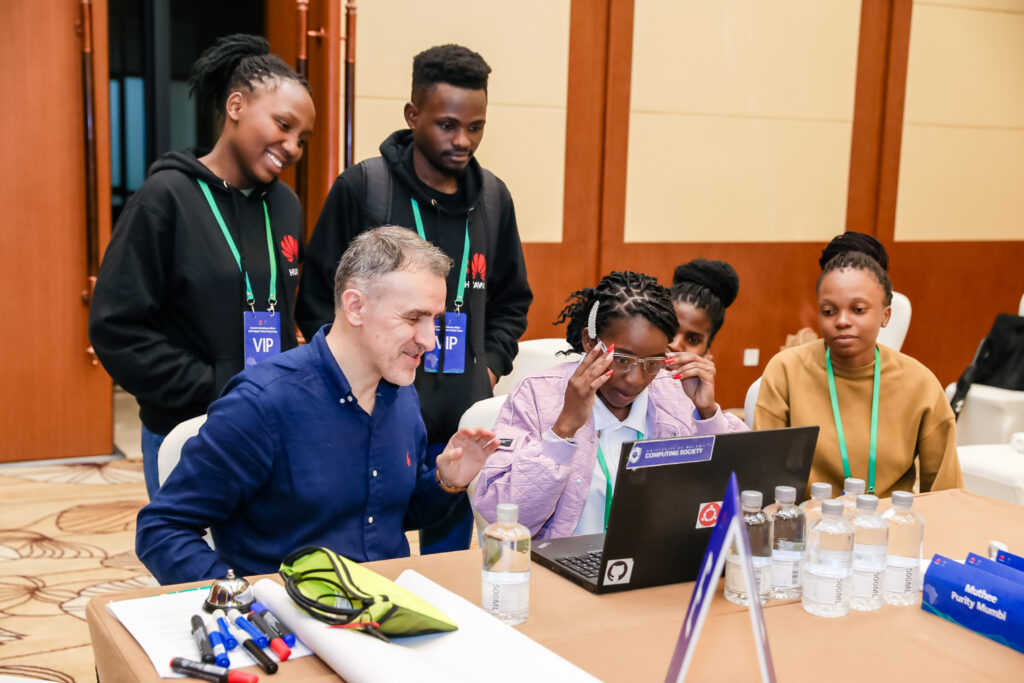
What unique strength or perspective do you believe you brought to the mentorship team that complemented your fellow mentors?
My unique contribution to the membership team came from blending my industry experience as a founder myself with my coaching experience focused on empowerment rather than instruction. In many situations, mentoring is about providing technical or domain expertise, which is certainly a big part of how a mentor should contribute to a project. What I believe I add to that, is helping teams develop clarity about their own vision and building the resilience to pursue it.
I believe this can help ensure teams build not only functioning solutions, but also the leadership capacities and strategic thinking necessary for the long-term success of their ideas.
How has mentoring these young innovators influenced your own professional outlook or creative thinking?
The mentoring process with Tech4Good has transformed how I view myself, innovation and leadership. The team’s fresh perspectives, often unencumbered by industry conventions that I may fall into, have challenged my own thinking in profound ways. I can think of two particularly significant shifts in my outlook that have occurred. The first one is really an AI-first approach that I have developed following the mentoring sessions. I now find myself re-learning and re-exploring -with the help of AI- topics, and ways of doing things I used to view as fixed, with a fresh and exciting fluidity. The second one is – as a leader and as a citizen of the world – to constantly challenge assumptions and really have a renewed respect for geographical and cultural diversity that our current world is made of.
I really believe the solutions for the future will come from embracing our diversity, valuing and contributing with what makes us unique rather than create uniform solutions and try to apply them everywhere. What we often think of black and white, right or wrong, is often a much more complicated palette of greys with subtle nuances and very specific attributes behind it.
I’m very grateful to PIM and Huawei Seeds for the Future for creating the Tech4Good platform where both mentors and mentees can grow together and together, we can expand our collective capacity to create meaningful changes through technology. I’m looking forward to continuing my journey as a mentor in the future and continue to grow myself as a mentor and as a leader.
Meet Our Mentor
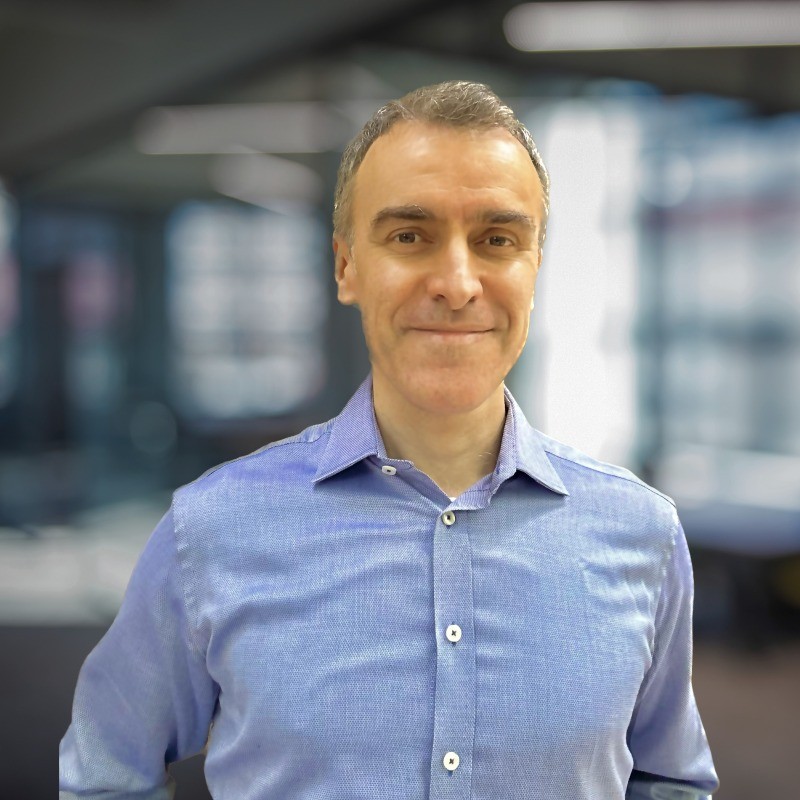
Daniele Poggio
Italy
Mentor, PIM Tech4Good Program
“One of the most exciting things about being a mentor wasn’t just watching the technological solutions that have been developed. It’s been witnessing young innovators transform into confident leaders capable of navigating the uncertain words of business in the startup.”
